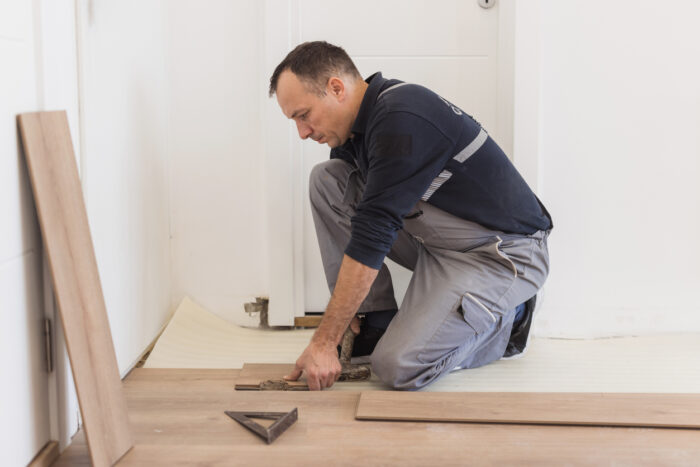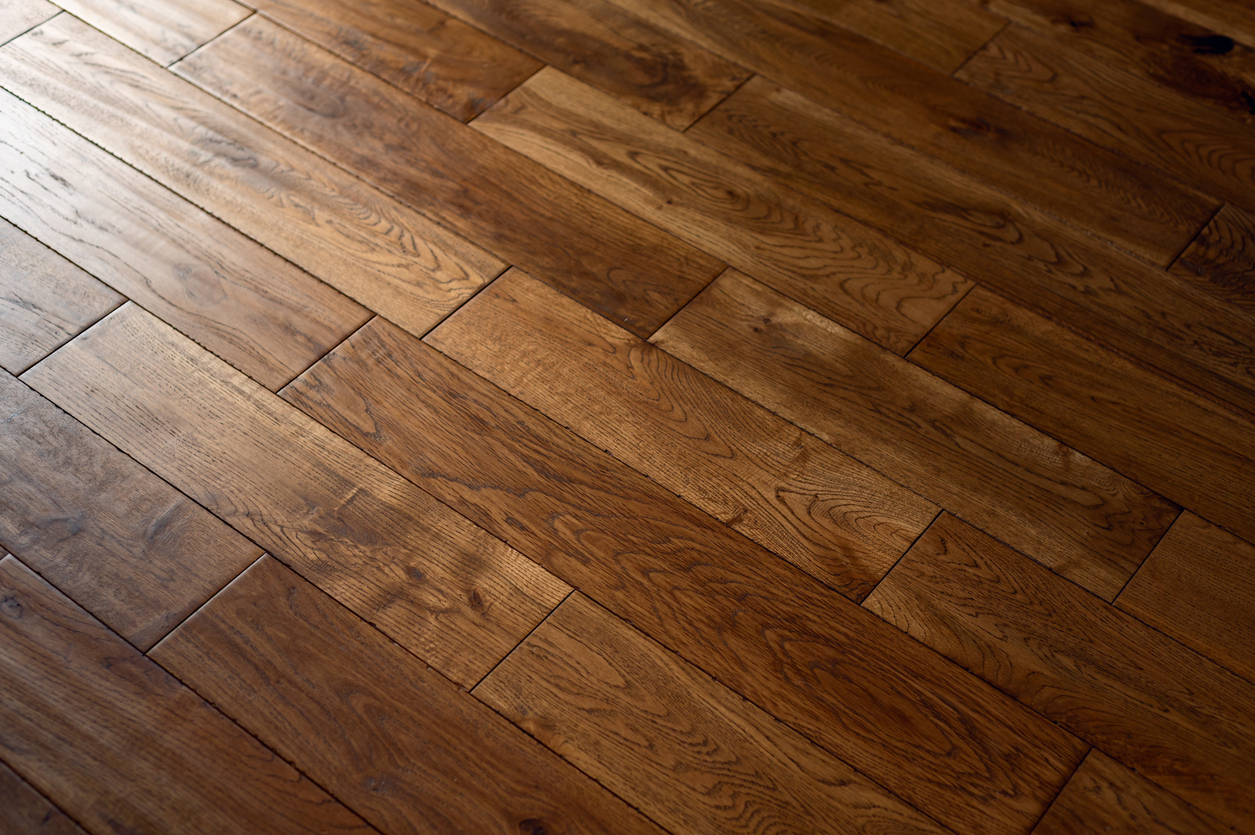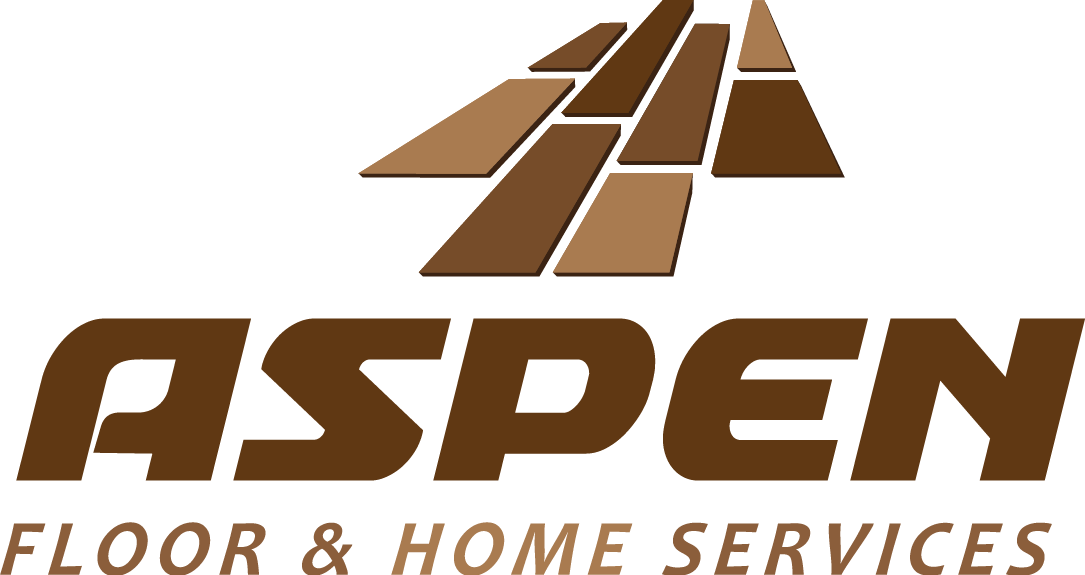If you’re searching for “hardwood flooring installation near me” in Denver, CO, you’re likely aware of the unique challenges our mile-high climate presents for hardwood floors.
With low humidity and significant temperature swings, it’s crucial to choose the right materials and work with experienced professionals who understand Denver’s specific needs.

Why Denver’s Climate Matters for Hardwood Flooring
Denver’s arid climate can be tough on hardwood floors, causing issues like:
- Shrinking and gapping between planks
- Warping or cupping of boards
- Cracking and splitting of wood
To combat these problems, it’s essential to select hardwood species and installation techniques that are well-suited to Denver’s dry conditions.
Working with local professionals who have experience installing hardwood in Denver homes can make all the difference in the longevity and appearance of your floors.
| Hardwood Issue | Cause | Prevention |
|---|---|---|
| Gapping | Low humidity causes wood to shrink | Proper acclimation and humidity control |
| Warping/Cupping | Moisture imbalance between top and bottom of boards | Stable subfloor and consistent room conditions |
| Cracking/Splitting | Extreme dryness and temperature fluctuations | Choose stable wood species and maintain humidity levels |
How to Choose a Reliable Hardwood Flooring Installation Company
When searching for hardwood flooring installation near you in Denver, look for companies with:
- Proven experience installing hardwood in Denver homes
- Positive reviews and references from local customers
- Certifications from National Wood Flooring Association or similar organizations
- Knowledge of Denver’s unique climate challenges and solutions
Don’t hesitate to ask potential installers questions about their experience, techniques, and familiarity with Denver’s climate.
A reputable company will be happy to share their expertise and provide recommendations tailored to your home’s specific needs.
Understanding Costs What to Expect in Denver
The cost of hardwood flooring installation in Denver can vary based on factors like:
| Factor | Lower Cost | Higher Cost |
|---|---|---|
| Wood Species | Domestic hardwoods (Oak, Maple) | Exotic or rare species |
| Type of Hardwood | Engineered hardwood | Solid hardwood |
| Installation Method | Click-lock or floating floors | Nail-down or glue-down |
| Square Footage | Smaller rooms or projects | Larger spaces or whole-home installations |
| Subfloor Preparation | Minimal prep needed | Extensive leveling or repairs required |
On average, Denver homeowners can expect to pay between $8 to $15 per square foot for hardwood flooring installation, with most projects falling in the $10 to $12 range.
To get accurate quotes and avoid surprises, be sure to discuss your project details and any unique requirements with potential installers upfront.
The Best Types of Hardwood for Denver’s Unique Climate
When selecting hardwood flooring for your Denver home, consider:
| Hardwood Type | Pros | Cons |
|---|---|---|
| Engineered Hardwood | – More stable in dry climates – Less prone to warping or cupping – Suitable for installation over concrete subfloors | – Can be more expensive than solid hardwood – Thinner wear layer may limit refinishing options |
| Solid Hardwood | – Classic look and feel – Can be sanded and refinished multiple times – Often more affordable than engineered options | – More susceptible to moisture-related issues – Not recommended for installation below grade or over concrete |
Your hardwood flooring installer can provide personalized recommendations based on your home’s specific conditions, aesthetic preferences, and budget.
Ensuring Proper Installation for Long-Lasting Results
In Denver’s dry climate, proper hardwood flooring installation techniques are critical for preventing issues like gapping, warping, and cracking.
Experienced local installers will take steps such as:
- Acclimating wood to your home’s humidity levels before installation
- Ensuring a stable, moisture-controlled subfloor
- Using the right fasteners and adhesives for the job
- Leaving adequate expansion gaps around room perimeters
- Providing guidance on maintaining proper humidity levels in your home
Why the Right Hardwood Flooring Installation Matters in Denver
Investing in quality hardwood flooring installation from a trusted local company can:
| Benefit | Why It Matters |
|---|---|
| Ensure durability and longevity | Proper installation techniques and materials prevent premature wear and damage |
| Enhance home value | Well-installed, climate-appropriate hardwood floors are a selling point in Denver |
| Provide peace of mind | Working with experienced professionals minimizes risk of installation issues or failures |
When searching for “hardwood flooring installation near me” in Denver, CO, look for a company that combines local climate expertise with a commitment to quality craftsmanship and customer service.
By partnering with the right installer, you can enjoy beautiful, durable hardwood floors that stand the test of time in Denver’s unique climate.

FAQs
How do I find reliable hardwood flooring installation companies in Denver?
Look for companies with proven experience in Denver, positive local reviews, and certifications from industry organizations like the National Wood Flooring Association.
What is the average cost of hardwood flooring installation near Denver?
Most Denver homeowners can expect to pay between $8 to $15 per square foot for hardwood flooring installation, with an average of $10 to $12 per square foot.
Are there specific installation techniques for Denver’s dry climate?
Yes, experienced Denver installers will take steps like proper acclimation, subfloor preparation, and humidity control to ensure the best results in our dry climate.
How do local companies ensure the longevity of hardwood floors in Denver?
Reputable hardwood flooring installers in Denver use climate-appropriate materials and techniques, and provide guidance on maintaining proper humidity levels in your home.
What types of hardwood are best suited for Denver’s weather conditions?
Engineered hardwood and stable wood species like White Oak, Hickory, and Maple tend to perform well in Denver’s dry climate, with less risk of warping, cupping, or gapping.

